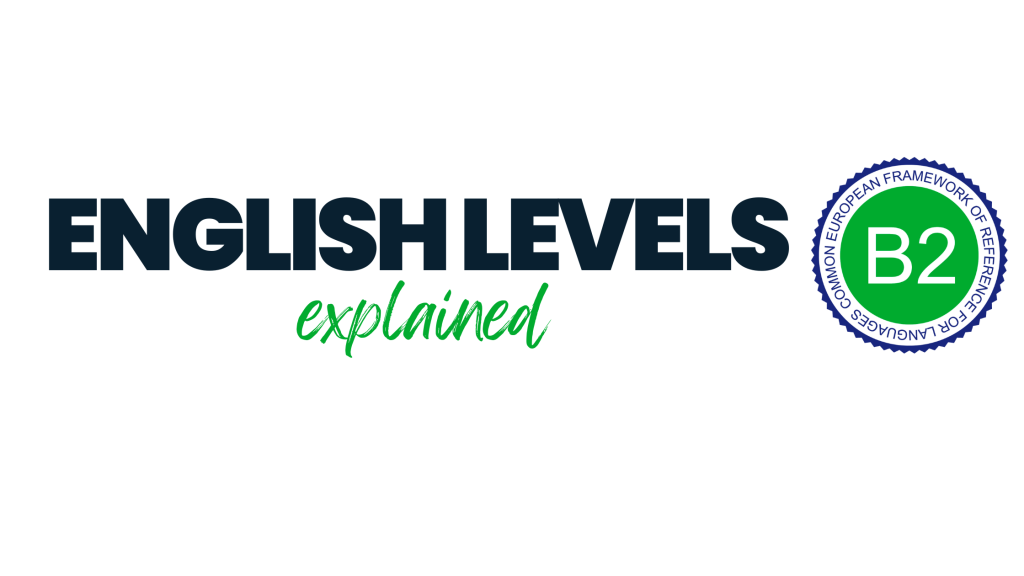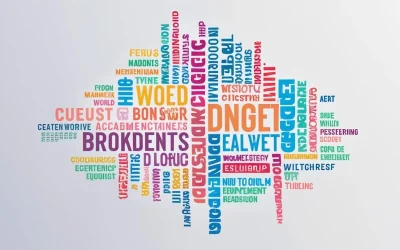Are you ready to take your English language skills to the next level? Whether you’re a student, professional, or simply someone passionate about learning, mastering B2 English is essential for unlocking countless opportunities. In this comprehensive guide, we will equip you with the tools and strategies needed to achieve fluency in B2 English. From building a strong foundation of grammar and vocabulary to honing your speaking and writing skills, we will guide you every step of the way. With our expert tips and techniques, you’ll learn how to confidently express yourself in both formal and informal settings, engage in meaningful conversations, and write compelling texts that captivate your audience. Whether your goal is to enhance your career prospects, connect with people from diverse backgrounds, or simply broaden your horizons, this ultimate guide is your roadmap to mastering B2 English. Get ready to embark on an exciting language journey filled with growth, confidence, and endless possibilities!
What is your English level?
Find out your A1 A2 B1 B2 C1 C2 level of English with our online test and receive your English certificate.
Why is B2 English important?
English is the global language of communication, and achieving fluency in B2 English opens up a world of opportunities. Whether you’re looking to advance your career, study abroad, or connect with people from different cultures, mastering B2 English is crucial. B2 English proficiency is often required by universities, employers, and immigration authorities, as it demonstrates your ability to understand and communicate effectively in English. By achieving B2 English fluency, you’ll gain a competitive edge, broaden your horizons, and increase your chances of success in various aspects of life.
What is B2 English proficiency?
B2 English proficiency refers to the ability to understand and use English in a wide range of contexts. It is the fourth level in the Common European Framework of Reference for Languages (CEFR), which provides a standard framework for assessing language proficiency. At the B2 level, you should be able to understand the main ideas of complex texts, interact with native speakers with a degree of fluency and spontaneity, produce clear and detailed written texts, and give presentations on familiar topics. Achieving B2 English proficiency requires a solid grasp of grammar, a wide-ranging vocabulary, and the ability to communicate effectively in both spoken and written English.
Benefits of achieving B2 English fluency
Mastering B2 English fluency comes with a plethora of benefits. Firstly, it enhances your career prospects. In today’s globalized world, many companies require employees who can communicate fluently in English. By achieving B2 English fluency, you’ll be able to compete for international job opportunities and increase your chances of career advancement. Secondly, B2 English fluency allows you to connect with people from diverse backgrounds. English is the language of international communication, and being able to converse fluently in English opens doors to meaningful connections and cultural exchange. Lastly, achieving B2 English fluency broadens your horizons. You’ll have access to a wealth of knowledge, literature, and resources available in English, enabling you to engage with a global community and stay informed about the latest developments in various fields.
B2 English proficiency levels explained
The Common European Framework of Reference for Languages (CEFR) divides language proficiency into six levels: A1, A2, B1, B2, C1, and C2. Each level corresponds to specific language abilities and skills. At the B2 level, you should be able to understand the main ideas of complex texts, interact with native speakers with a degree of fluency and spontaneity, produce clear and detailed written texts, and give presentations on familiar topics. B2 English proficiency indicates a high level of language proficiency and allows for effective communication in both social and professional settings.
Are you C1 Advanced English?
Get your C1 Advanced English certificate now!
✓ Add your certificate to your resume
⭐ ⭐ ⭐ ⭐ ⭐
How to assess your current B2 English level
Assessing your current B2 English level is crucial for designing an effective learning plan. There are various ways to assess your B2 English level. You can take online proficiency tests specifically designed for B2 English, such as the Cambridge English exams or the TOEFL. These tests evaluate your listening, reading, writing, and speaking skills to determine your English proficiency level. Another option is to engage in conversations with native English speakers and ask for their feedback on your language skills. Additionally, you can consult with language teachers or language learning experts who can assess your level based on your performance in specific language tasks and exercises. By assessing your current B2 English level, you’ll have a clear understanding of your strengths and areas for improvement, enabling you to focus your efforts effectively.
Tips for improving your B2 English skills
Improving your B2 English skills requires dedication, practice, and a strategic approach. Here are some tips to help you on your language learning journey:
1. Expand your vocabulary
Building a strong vocabulary is essential for expressing yourself fluently in B2 English. Read extensively, use vocabulary learning apps, and practice using new words in context.
2. Master grammar
A solid understanding of grammar is crucial for effective communication. Invest time in learning and practicing grammar rules, and seek feedback on your written and spoken English to identify and correct any grammatical errors.
3. Listen and speak regularly
Engaging in regular listening and speaking practice is key to improving your fluency. Watch English movies, listen to podcasts, and engage in conversations with native speakers or language exchange partners.
4. Write regularly
Writing is an excellent way to improve your language skills. Practice writing essays, emails, or blog posts on various topics. Seek feedback from native English speakers or language teachers to identify areas for improvement.
5. Immerse yourself in English
Surround yourself with English language content as much as possible. Watch English TV shows, listen to English music, and read English books. Immerse yourself in the language to develop a natural feel for it.
By implementing these tips consistently, you’ll gradually improve your B2 English skills and move closer to achieving fluency.
The best resources for mastering B2 English
When it comes to mastering B2 English, having access to the right resources is essential. Here are some recommended resources to help you on your language learning journey:
1. **Language learning apps**: Duolingo, Babbel, and Memrise are popular language learning apps that offer comprehensive courses for English learners at the B2 level. These apps provide interactive lessons, vocabulary practice, and speaking exercises to enhance your language skills.
2. **Online courses**: Platforms like Coursera and Udemy offer a wide range of B2 English courses taught by experienced language instructors. These courses cover various aspects of B2 English, including grammar, vocabulary, listening, speaking, and writing.
3. **Language exchange platforms**: Websites and apps like Tandem and HelloTalk connect language learners from around the world. You can find language exchange partners who are native English speakers and engage in conversations to practice your speaking and listening skills.
4. **English language podcasts**: Podcasts like “EnglishClass101” and “The English We Speak” provide entertaining and educational content for English learners. Listening to these podcasts can improve your listening comprehension and expose you to natural English conversations.
5. **English literature**: Reading English literature, such as novels, short stories, and newspapers, can enhance your vocabulary, grammar, and reading comprehension skills. Choose books that match your reading level and gradually challenge yourself with more complex texts.
By utilizing these resources, you’ll have a comprehensive toolkit to support your B2 English learning journey.
B2 English speaking practice exercises
To improve your B2 English speaking skills, practice is key. Here are some speaking exercises you can try:
1. **Debate club**: Join a debate club or organize debates with fellow English learners. Choose topics of interest and engage in structured discussions, presenting arguments and counterarguments.
2. **Role-play**: Act out different scenarios with a language partner, taking on different roles and practicing conversational skills. This can be done in person or through video calls.
3. **Public speaking**: Challenge yourself to give presentations or speeches in English, either in front of a small group or through online platforms. This will help you build confidence and improve your fluency.
4. **Group discussions**: Participate in group discussions or language exchange meetups where you can engage in conversations with native English speakers and other learners. This will expose you to different accents and perspectives.
Remember, the more you practice speaking, the more comfortable and fluent you’ll become in B2 English.
B2 English writing practice exercises
Writing practice is essential for improving your B2 English writing skills. Here are some exercises to help you enhance your writing abilities:
1. Journaling:
Start a journal in English and write about your thoughts, experiences, and observations. This will help you develop a writing habit and improve your ability to express yourself in writing.
2. Essay writing
Practice writing essays on various topics, focusing on structuring your ideas, using appropriate vocabulary and grammar, and presenting arguments coherently. Seek feedback from native English speakers or language teachers to improve your writing skills.
3. Email correspondence
Write emails in English, whether it’s for professional or personal purposes. Pay attention to the tone, clarity, and organization of your emails, and aim to communicate your message effectively.
4. Creative writing
Experiment with creative writing, such as short stories, poems, or blog posts. This will allow you to explore different writing styles and unleash your creativity while practicing your language skills.
By incorporating these writing exercises into your routine, you’ll develop a strong foundation in B2 English writing.
Conclusion
Mastering B2 English is a valuable skill that opens up a world of opportunities. By building a strong foundation of grammar and vocabulary, honing your speaking and writing skills, and utilizing the best resources available, you can achieve fluency in B2 English. Remember, language learning requires dedication, practice, and a growth mindset. Stay consistent, embrace challenges, and celebrate your progress along the way. With determination and the strategies outlined in this ultimate guide, you’ll be well on your way to mastering B2 English and unlocking a world of possibilities. Good luck on your language learning journey!
What is your English level?
Find out your A1 A2 B1 B2 C1 C2 level of English with our online test and receive your English certificate.
I am Nilay, an experienced English Language Assessment Director at the International English Test, where I have been working full-time since February 2020. I specialize in helping people worldwide validate their English proficiency through comprehensive assessments and certifications.
Before joining the International English Test, I worked as a self-employed English Language Assessment Consultant from January 2015 to December 2019. During this time, I assisted companies and individuals in improving their language skills, helping them achieve their academic and professional goals.
I hold a degree in Engineering and have also studied at Shafston International College in Australia. My educational background has equipped me with the tools to make a meaningful impact in the field of English language learning. Additionally, I enjoy sharing my expertise through articles that explore effective teaching methods and language assessment strategies, contributing to the International English Test and the broader assessment community.





